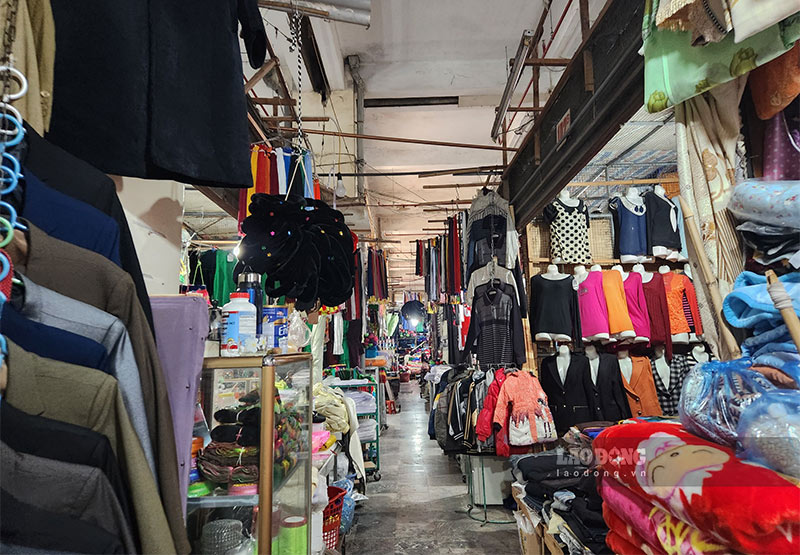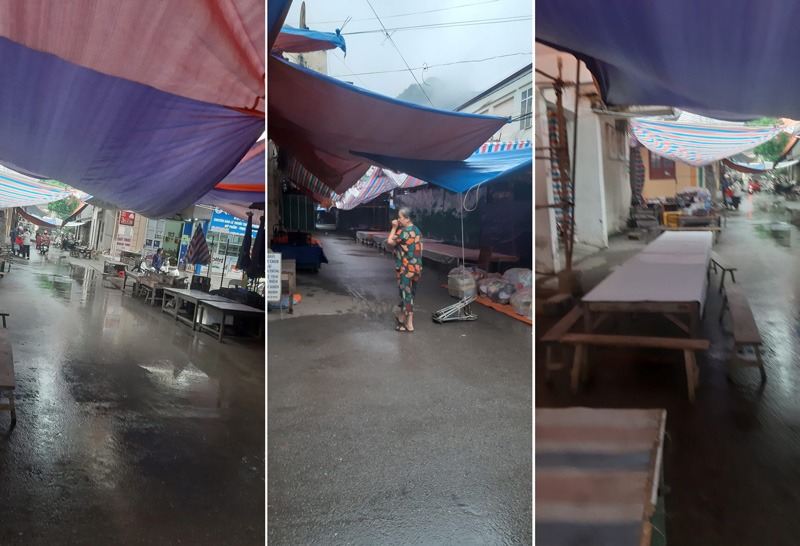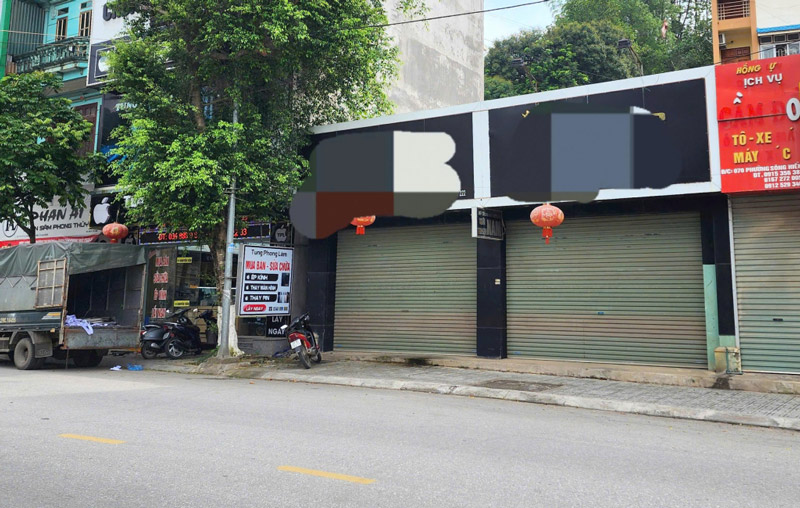A series of quiet market kiosks
In recent days, Thai Market, the oldest commercial center in Thai Nguyen City, has been in a state of disrepair and desolation for a long time.
On June 7, Lao Dong Newspaper's reporter noted that the inside area only has a few stalls, the bustling buying and selling atmosphere has now become deserted and deserted.
Inside the low-rise buildings, there were few people passing by. On the 2nd floor, the clothing sales area also experienced a similar situation, with a series of stalls closed.


Many stalls are only half-opposite, without any explanation, the owners sit inside the packaging or quietly observe the situation.
Some traders in Thai Market said that the business and trading situation has recently become quiet, especially at present, when authorities have increased inspections of documents, invoices and the origin of goods.
Ms. Nguyen Thi Lien (character's name has been changed) said: "I have been doing business here for more than 10 years, here I only get goods from acquaintances, some places even have signed a handwritten book but no invoices. Now that I have to declare and present the invoices, I don't know what to do".
Some other traders here also said that many sellers decided to close their stores because they were worried about the risk of being fined for not understanding the paperwork.
"In the past few days, I have heard that the inspection team has closed the door and waited to see the situation. When I open, I feel anxious, but when I retire, I don't have income," said a trader.
Traders hope that during the implementation process, there will be more specific instructions to avoid causing psychological pressure as well as work not being disrupted or affected.
Selling in anxiety, anxiety
A similar situation also occurs at markets in the border area of Cao Bang. After more than 20 years of trading at the central market of Cao Bang City, Ms. Tran Kim Van - a shoe and handbag trader - is feeling that the past few days have been really heavy.
She shared: "Hearing that big markets such as Dong Xuan and Ninh Hiep were inspected, many households here also temporarily stayed. The goods I sell are mainly imported retail from many sources, and having complete documents is very difficult, so I am very worried about being inspected and confiscated".
In recent days, many stores and kiosks in Cao Bang city or in central markets have been closed and trading at a low level.


In addition to the markets, many small stores on the streets are also temporarily closed. According to the owners of these stores, they temporarily closed to learn about the new clear tax policy before reopening.
Not only in Cao Bang City, at Quang Uyen Market (Quang Hoa District) or Trung Khanh Town Market, kiosks are also closed.
A trader shared that most of the kiosks at Trung Khanh market were closed because they had just been inspected or fined, and the households that were opening for sale were also worried and anxious.


Faced with this situation, the People's Committees of districts and cities in Cao Bang province have stepped up propaganda so that households can feel secure in returning to trading, ensuring the supply of goods to people.
The temporary closure of many traders has caused panic in the community, especially when there were many conflicting information flows on social networks.
Talking with reporters, the leader of Cao Bang City People's Committee - shared that this peak period of goods inspection is a necessary policy to protect consumer rights.
"The focus of this inspection is food items, functional foods or essential items that we eat and drink every day. In addition, the origin of all goods also needs to be clearly checked and traced so that people can feel secure in using them" - said the leader of Cao Bang City.
Recently, at the end of May 2025, the People's Committee of Cao Bang province established a Working Group to deploy a peak period to prevent counterfeit goods, counterfeit goods, combat smuggling and infringe intellectual property rights (according to Decision No. 712-QD-UBND) to expand the search and inspection to prevent counterfeit goods and counterfeit goods.










